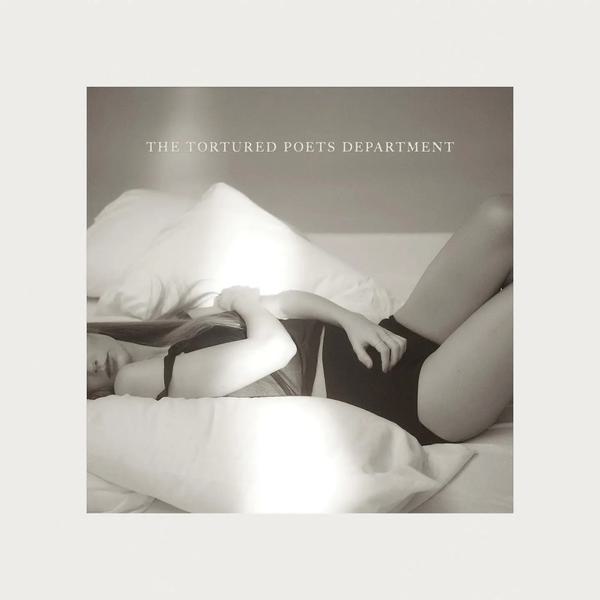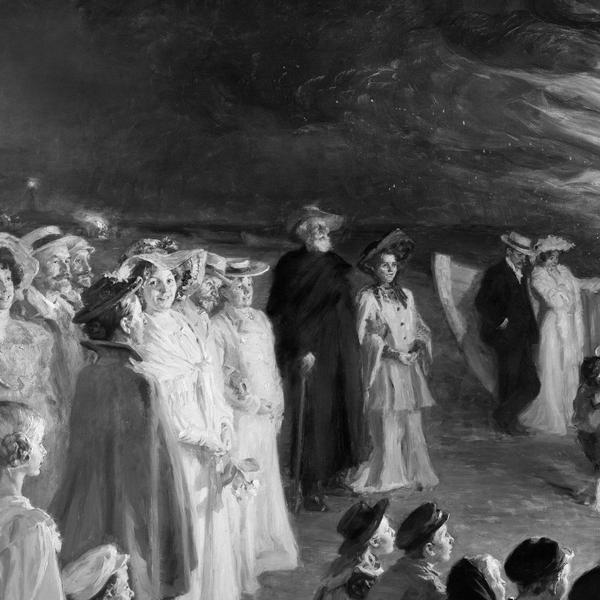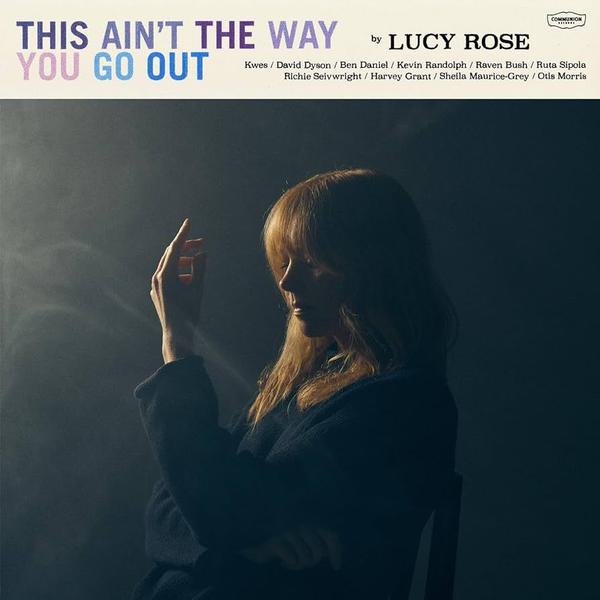The promise of dread: Mogwai's Atomic live in London
It would be reasonable to assume that not one single person in the audience for the screening of Atomic at the Barbican, live-scored by Mogwai, was alive when the Allies used nuclear weapons against Japan to end World War Two in 1945.
Indeed, not many people are. For some historical events, this means that the population loses touch, the time and distance between the occasion and the understanding of it blurs and twists the impact and relevance of it to the point of apathy, but not so for that bespeckled, black and white footage of Hiroshima on that August day 70 years ago.
Everyone in the room at London's Barbican Centre had likely seen the various clips before, but not like this; not in the context of a documentary about the worrying power of man’s greatest ever weapon, set to music by a band known too for its own ferocious might.
Tonight (15 September) Mogwai are playing the soundtrack they wrote – which might easily sit as a standalone album, if a little grim – beneath a projection of the Mark Cousins’ documentary, Atomic: Living in Dread and Promise.
And fuck is it more dread than promise. The show, about 80 minutes, is unrelenting in its misery.
If the senses-smashing segment of the bomb landing on the Japanese city in 1945 is crude hammerblows to the eyes and ear, then the slow-burning communication that there has never been more weapons in the world capable of doing the same is needling to hearts and minds.
This reviewer made the mistake of not wearing earplugs, thinking “I know Mogwai are famed for being the loudest band in the world but this is a documentary at the Barbican”, but nope, the Scottish post-rockers still sought to punish with trademark might. What makes this all the more impressive is that a listen to the studio version of the record suggests a much sleepier doom than the all-consuming torment that is unleashed on stage – and also that the band is all-but stationary tonight, sat down and barely lit beneath the screen.
As well as footage of atomic bombs and their aftermath, the film uses clips of public information adverts for how to behave in cases of a nuclear attack (this was felt keenest in the 1960s thanks to the Cuban Missile Crisis). Despite the detachment from Hiroshima and Nagsaki of tonight’s audience, it is hard not to watch this – and listen to this – without considering how it might feel should London, or any other city in the UK – come under attack. For a show just over an hour, it is utterly exhausting.
As the film moves on from the Cold War and through the risk (and promise) of nuclear science in medicine, the music is more subtle. The malaise of military concern is peppered with colourful keyboard lick and lighter guitar lines. But this is not so for the crescendo.
It is no secret Mogwai is opposed to nuclear weapons – the band were pro-Scottish independence in 2014, which also ties in with their objection to the nuclear Trident base on the Clyde – but it was after a visit to Hiroshima that Stuart Braithwaite et al hardened their stance. The full force of this position is felt as the credits begin to roll, spliced with clips of close ups of the burning sun, and Mogwai flips back the security cover, enters the go-codes and pushes the button.
The wall of sound is as close as a band can get to imitating the rush of destruction that spreads from a nuclear bomb’s ground zero. By the time, it has finished the film is over and each member of Mogwai has left the stage and the audience is left alone with its thoughts. Deeply unsettling, harrowing thoughts.
- Alfie Templeman previews second album with new single, "Hello Lonely"
- Stevie Nicks has written a poem on Taylor Swift’s The Tortured Poets Department
- Nas announces Illmatic 30th anniversary UK headline tour
- David Byrne unveils his cover of Paramore's "Hard Times"
- FOCUS Wales Festival unveils full film programme for 2024
- HONNE return with new single, "Imaginary"
- K-Trap announces his forthcoming debut album, "SMILE?"
Get the Best Fit take on the week in music direct to your inbox every Friday

Taylor Swift
The Tortured Poets Department

Chanel Beads
Your Day Will Come

Lucy Rose
This Ain't The Way You Go Out





